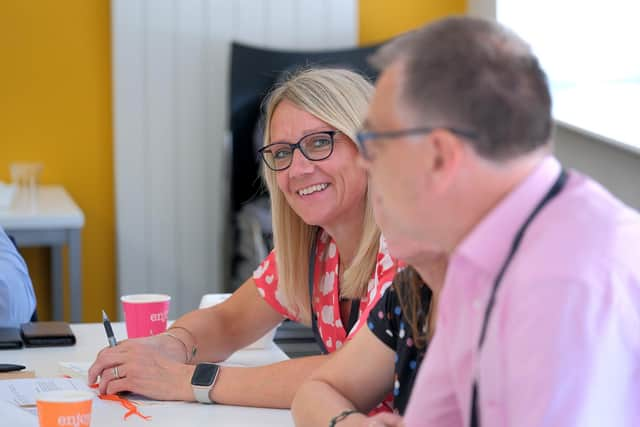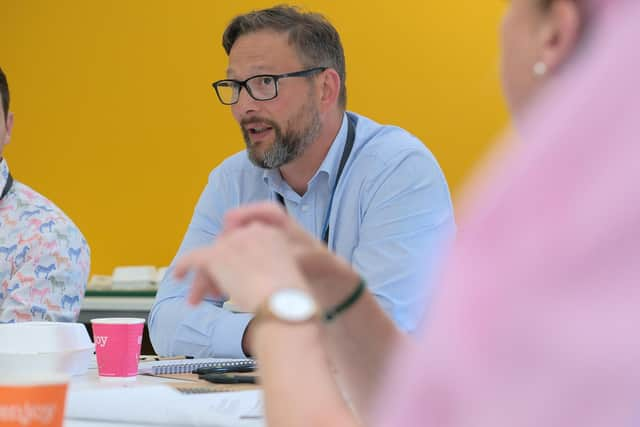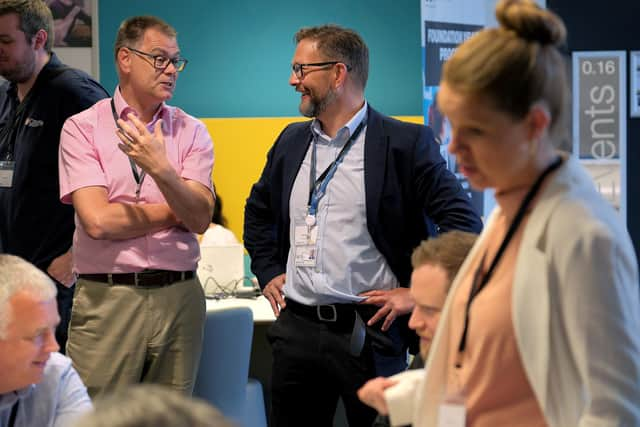Cyber cluster plan aims to bring skilled jobs to the coast, Made Smarter roundtable is told
Participants in a roundtable at Coventry University’s Scarborough campus pledged to collaborate to spread the word about the world-class manufacturing companies on the Yorkshire coast.
The York & North Yorkshire Growth Hub, in conjunction with Made Smarter, joined forces with The Yorkshire Post to host a debate featuring some of the region’s leading business figures. Made Smarter can help businesses transform their performance with road mapping, technology support and grant funding.
Advertisement
Hide AdAdvertisement
Hide AdAlex Richards, the head of economic development and regeneration services for the Scarborough area for North Yorkshire Council, said he had spent 18 months working to establish a cyber security network in North Yorkshire.


Councillors have granted approval to create a ‘cyber cluster’ around Scarborough. It is proposed that the Yorkshire coast cluster will focus on operational technology, which could include sensors to control domestic heating systems or large pieces of equipment in a business.
Mr Richards added: “We are working on a project with Anglo American, GCHQ and Coventry University. We need to explain that Scarborough is an exciting place to work.”
The long-term goal is to establish Scarborough as a national centre of excellence through a partnership between local and national government, industry and academic institutions.
Advertisement
Hide AdAdvertisement
Hide AdChris Houston, the managing director of specialist engineering firm Tadweld, said that, on average, each staff member at his company had been employed by the business for 12 years, which was a sign of the loyalty of the workforce.


However, he said that finding suitable premises had been a problem with limited availability and “limited support available for businesses that wanted to grow”. He said there seemed to be a reluctance to provide space for manufacturing, because it was perceived as a heavy industry, while space seemed to be more readily available for non-manufacturing businesses.
He added: “Attracting young talent to the business is also a core focus, which begins with education in STEM (science technology engineering and mathematics) subjects and reinforcing engineering as a prestigious career choice.”
Dave Roberts, operations director at Alexander Dennis, Britain's biggest bus builder, said the firm had recently taken on 30 apprentices and, as a major historic brand, it didn't find it hard to recruit the right staff.
Advertisement
Hide AdAdvertisement
Hide AdThe pandemic had hit the business, because people travelled less frequently, which reduced the demand for buses, but the company was investing in its site.


He added: “The biggest challenges are in the supply chain at a time when there is soaring demand for electric buses. Investment is being made on a 100,000 sq ft facility in the area to ensure we can prosper in the future.”
He said he was going out into the community to make people aware of the long-term jobs available at the firm.
This is the latest in a series of articles about the roundtable, which was chaired by Greg Wright, The Yorkshire Post’s deputy business editor.
Advertisement
Hide AdAdvertisement
Hide AdOne of the roundtable participants, Chloe Brown, from Lab Plant UK, which makes spray dryers, said the strengths of the local economy included the powerful sense of community and commitment to buy locally.


She said: “The sector has faced rising costs and recruitment challenges since the pandemic and one method of encouraging a new generation into manufacturing could be the introduction of internships.
"It was extremely insightful to hear about the strengths and challenges that other businesses in the local manufacturing community have, and was a fantastic opportunity for introduction and identifying how we could tackle some potential issues. We’re also looking at how we could potentially collaborate with other businesses present.”